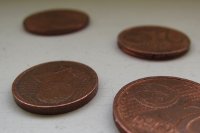The Greek firm that runs the lottery for Staatsloterij (the Dutch state lottery) is susceptible to fraud, Volkskrant writes.
Several former employees of the company, called Intralot, told the newspaper last Saturday that they are capable of removing lottery numbers from the draw. Since this would happen after Staatsloterij has sold the tickets, this doesn’t change the amount of money that can be won, but it does change the chances each player has of winning. As long as the same percentage of winners is distributed equally across regions, ages, and so on as the percentage of players, Staatsloterij has no way of knowing if tickets have been doctored and if so, which ones.
Gambling is strictly regulated in the Netherlands, a monopoly kept by the government under the guise of protecting citizens from addiction.
An investigation has been started into the vulnerability by the Dutch gambling authority. Due to an unfortunate accident the Ministry of Finance tipped off Staatsloterij before the investigation started, Volkskrant adds in a second article. As the Dutch saying goes, ‘where people work hard, people make mistakes’. Other examples of instances where the government made mistakes are the two black boxes that disappeared from the site of the Bijlmer disaster and the lost film of the Srebrenica massacre. Do you know of any other country where the government works this hard?
(Photo of young children wearing colourful inflatable Staatsloterij crowns by Orangemaster)

 The Dutch revenue service (Belastingdienst) has announced that the winner of the Staatsloterij Jackpot will have to pay income tax over these winnings for both 2010 and 2011.
The Dutch revenue service (Belastingdienst) has announced that the winner of the Staatsloterij Jackpot will have to pay income tax over these winnings for both 2010 and 2011.